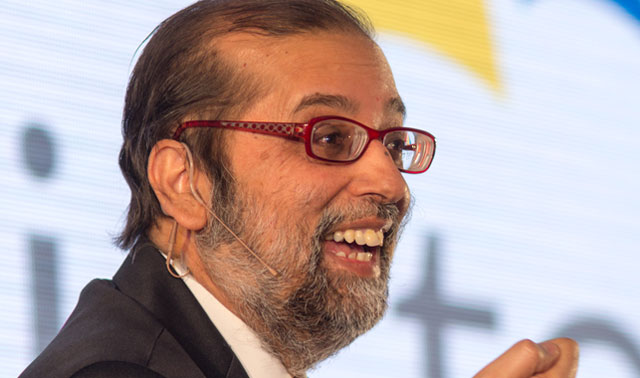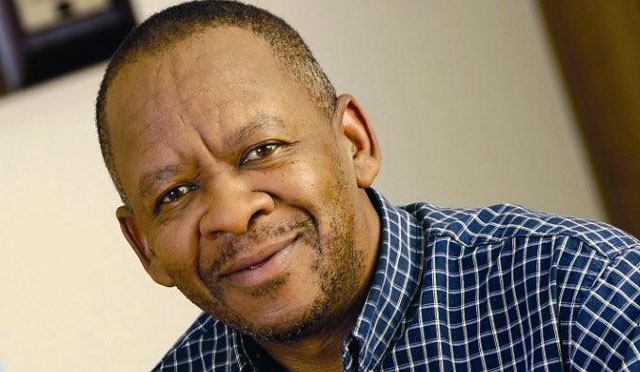
South Africa’s migration from analogue to digital terrestrial television looks set for yet more delays if an open letter, signed by MultiChoice, and published in weekend newspapers, is anything to go by.
The letter, in the form of full-page advertisements, lays into communications minister Yunus Carrim, saying his policy on the use of encryption technology in digital set-top boxes advances “certain narrow commercial interests”.
A war between South African broadcasters — with MultiChoice and the SABC on side and e.tv on the other — is threatening to derail South Africa’s migration to digital television. The country has until June 2015 to meet a deadline, agreed to with the International Telecommunication Union, to complete its migration.
The GSMA, which represents the world’s mobile operators, has already warned that the delays come at an economic cost running into billions of rand.
The letter to Carrim is signed by MultiChoice executive chairman Nolo Letele as well as National Association of Manufacturers in Electronic Components (Namec) secretary-general Keith Thabo and the Association of Community Television South Africa (ACT-SA) chairman Collin Mackenzie. In it, the three argue that the costs associated with deploying an encryption system in digital set-top boxes, which South Africans will need to continue receiving terrestrial television, “greatly outweigh any supposed benefits”.
But e.tv chief operating officer Bronwyn Keene-Young last year accused MultiChoice of trying to use the issue to keep its free-to-air rivals weak. She said in an interview with TechCentral that the “real reason” MultiChoice was opposed to encryption was that it “intends to use the free-to-air broadcasters — SABC and e.tv — to drive its terrestrial M-Net set-top box”. M-Net is a subsidiary of MultiChoice.
“If the free-to-air broadcasting platform is encrypted, MultiChoice will have to seek the agreement of the free-to-air broadcasters to be on its digital platform,” she said. “Without encryption, the M-Net digital set-top box will simply be able to pick up the signals of the free-to-air broadcasters … and M-Net will have a free ride to grow its currently negligible terrestrial M-Net households off the back of the SABC and e.tv without any compensation.”
Keene-Young has also argued previously that encryption is needed, among other things, to ensure that free-to-air broadcasters are able to secure the latest content, in high definition, from the big international studios. Without it, she argued, free to air would always be a poor second cousin to pay television.
MultiChoice now appears ready to take the battle directly to consumers. In Sunday’s letter, the broadcaster, along with partners Namec and ACT-SA, argue that Carrim’s “position” that set-top boxes include encryption technology will prove “unnecessary and expensive”.
“We have serious reservations about this,” they say in their letter. “It has been almost universally rejected internationally, it will make the migration process more expensive and it is opposed by most South African broadcasters.”
Last year, the SABC agreed to fight the use of encryption, siding with MultiChoice against e.tv. The move represented an about-turn for the public broadcaster, which had previously supported the e.tv position. The SABC struck a confidential deal with MultiChoice last year that prohibits it from offering any of its channels on a television platform that uses encryption technology. The deal meant the SABC received the cash it needed, from MultiChoice, to launch its long-delayed 24-hour news channel. E.tv slammed the agreement, saying it “directly contradicted government policy”.

In their letter, MultiChoice, Namec and ACT-SA argue that including encryption in set-top boxes will “harm consumers by raising the cost of digital migration and binding consumers to a set-top box forever”.
“If the current proposals are implemented, in South Africa (almost alone in the world), even consumers with digital TV sets will be forced to buy a completely unnecessary set-top box. [This is] because the free TV signal will be encrypted.”
If encryption is implemented, it will also “harm free-to-air broadcasting by increasing the cost of free-to-air television for broadcasters” and “disadvantage emerging black manufacturers”.
The letter goes on to say that using encryption will “increase the costs of migration for government” and “make the migration process complex and result in further delays”.
“We appeal to you to allow free, unencrypted digital terrestrial television to launch without any further delay,” the letter concludes.
Carrim’s spokesman, Siya Qoza, says the minister intends responding soon in writing to the letter. — (c) 2014 NewsCentral Media




